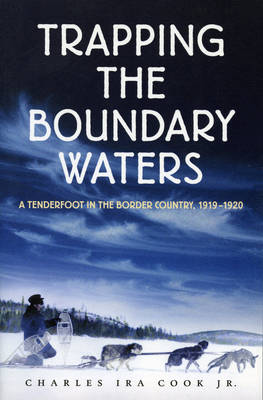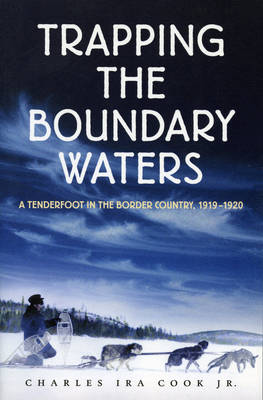
- Afhalen na 1 uur in een winkel met voorraad
- Gratis thuislevering in België vanaf € 30
- Ruim aanbod met 7 miljoen producten
- Afhalen na 1 uur in een winkel met voorraad
- Gratis thuislevering in België vanaf € 30
- Ruim aanbod met 7 miljoen producten
Zoeken
€ 26,45
+ 52 punten
Omschrijving
On May 4, 1919, Charlie Cook set off for a year of adventure in the Minnesota-Ontario Boundary Waters. Soon abandoned by his comfort-loving companion, the restless World War I veteran spent an enlightening year learning--often the hard way--how to paddle and sail on windy lakes, hunt and fish for food, bake "rough delicacies" in a reflector oven, and build winter-proof shelters. His how-to descriptions of trapping beaver, mink, and other game are unsurpassed in their detail.
Cook also found his way into the border community of Ojibwe and mixed-blood families and a motley assortment of mysterious travelers, game wardens, and loners, including trapper Bill Berglund (who "adopted" Cook until the tenderfoot's eagerness to harvest pelts came between them).
Cook's adventure climaxed in a 700-mile expedition by dogsled north into Canada, where he reached the limits of his endurance--and just barely lived to tell the tale.
For anyone who loves the Boundary Waters or wonders what this rugged region was like not so long ago, Cook's story reveals a world still ruled by nature but on the brink of change.
Cook also found his way into the border community of Ojibwe and mixed-blood families and a motley assortment of mysterious travelers, game wardens, and loners, including trapper Bill Berglund (who "adopted" Cook until the tenderfoot's eagerness to harvest pelts came between them).
Cook's adventure climaxed in a 700-mile expedition by dogsled north into Canada, where he reached the limits of his endurance--and just barely lived to tell the tale.
For anyone who loves the Boundary Waters or wonders what this rugged region was like not so long ago, Cook's story reveals a world still ruled by nature but on the brink of change.
Specificaties
Betrokkenen
- Auteur(s):
- Uitgeverij:
Inhoud
- Aantal bladzijden:
- 204
- Taal:
- Engels
- Reeks:
Eigenschappen
- Productcode (EAN):
- 9780873513791
- Verschijningsdatum:
- 15/03/2000
- Uitvoering:
- Paperback
- Formaat:
- Trade paperback (VS)
- Afmetingen:
- 132 mm x 201 mm
- Gewicht:
- 299 g

Alleen bij Standaard Boekhandel
+ 52 punten op je klantenkaart van Standaard Boekhandel
Beoordelingen
We publiceren alleen reviews die voldoen aan de voorwaarden voor reviews. Bekijk onze voorwaarden voor reviews.











